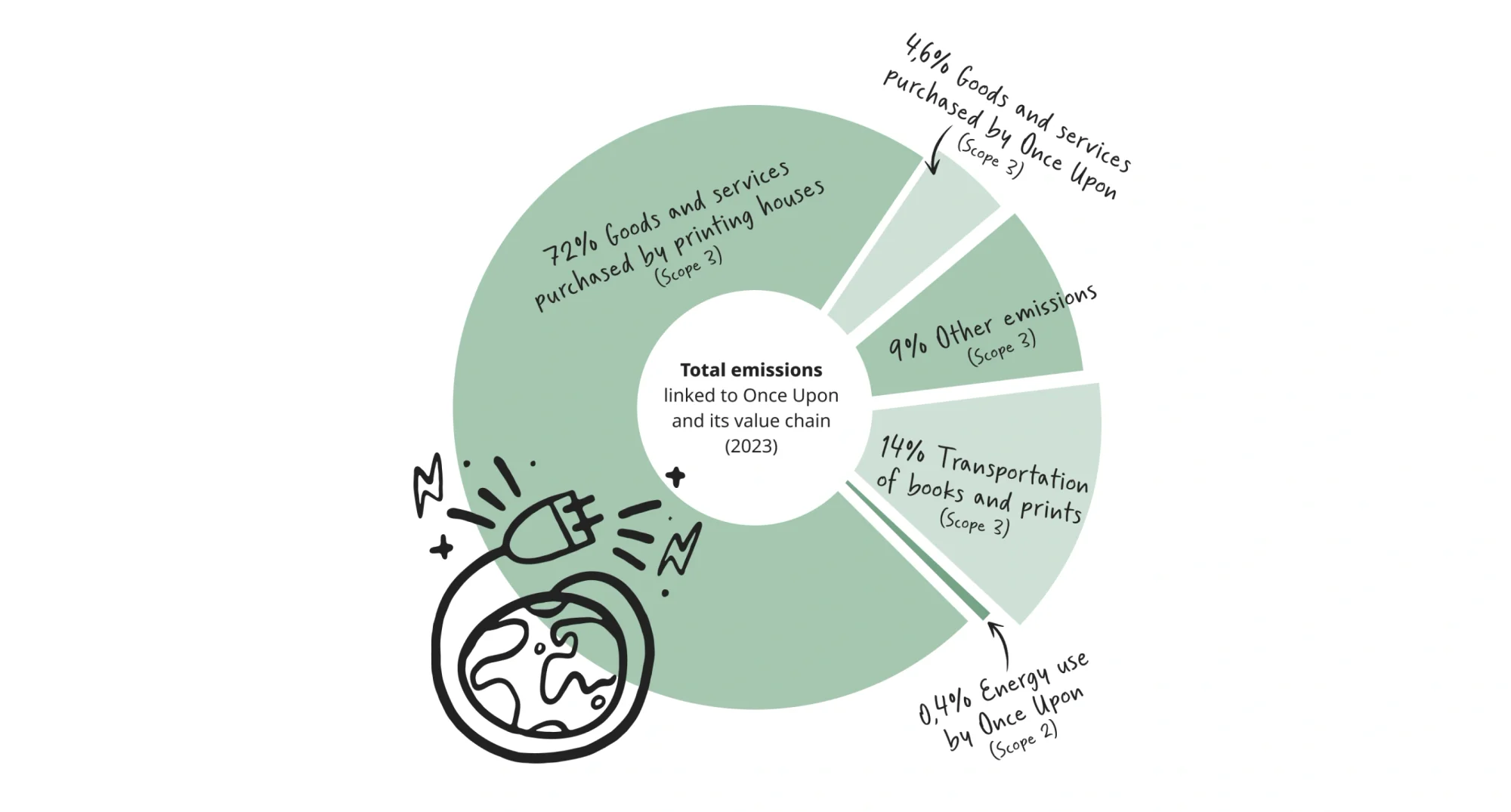Stories
Dive into our climate goals: Our journey towards a sustainable future
1 January 1970
"It begins already in the forest, our work to reduce the climate footprint and contribute to a book that considers both people and the environment - and it continues until you open the book."
Our value chain stretches from the forests where the paper for our books begins its journey, through paper mills and printing presses, and finally to our customers around the world. Along this journey, emissions are generated that we strive to minimize, to be part of a positive change. That's why we have set ambitious climate goals in line with science and what is required to achieve the Paris Agreement - to limit global warming to a maximum of 1.5 degrees. This means that our emissions must be halved by 2030, measured in tons of CO2e per million SEK in revenue.
Our Climate Goals
We have clear targets to minimize our carbon emissions, which we measure in ton Co2e related to revenue (ton Co2/MSEK):
2026: 35% reduction (Scope 1,2 and 3)*
2030: 50% reduction (Scope 1,2 and 3)*
2040: Reach net-zero greenhouse gas emissions across the value chain
Our current emissions divided according to the chart:

Categories with none or minor impact are excluded, such as prints.
* GHG Protocol establishes comprehensive global standardized frameworks to measure and manage greenhouse gas (GHG) where greenhouse gas emissions are categorized into three scopes: Scope 1 includes direct emissions from a company's own operations, Scope 2 covers indirect emissions from purchased energy, and Scope 3 involves indirect emissions from the entire value chain.
In 2023, our total climate impact was 851 tons of CO2e, which corresponds to 3.6 tons per million in revenue and 2.07 kg per book. This can be compared to the previous year, 2022, when our emissions were 649 tons of CO2e, 4.2 tons per million SEK in revenue, and 2.15 kg per book.The main driver of increased emissions is our revenue growth and the increased number of books we produce.
We work continuously and in close collaboration with our suppliers to focus on the largest sources of emissions: paper, energy, ink, and transports.

Our activities in 2024
Paper: We are working to reduce the climate footprint of the paper we use by switching to paper with a lower climate impact and optimizing as well as minimizing waste.
Transport: We are mapping our transport chains to minimize the distance to the customer and reduce air freight, which currently accounts for a small percentage of our transports but we want to decrease even further.
Energy: Energy choices by our suppliers play a significant role in our emissions. In 2024, all printing presses will make a plan to use 100% renewable energy by the end of 2026.


Challenges
Ink and glue are significant parts of our emissions, but it is difficult to measure the exact amounts for our books and influence the type of glue we use. In 2024, we will focus on learning more to make better decisions moving forward.
Successes
Our Swedish printing press reduced paper waste by 50% in 2023 through a different type of production process. Our printing presses worldwide have also made progress in renewable energy, reducing emissions by 38% compared to 2022.
If you want to read more about how we work and our emissions, see our climate report for 2023 and 2022.
What Does Net Zero Mean?
Net zero means that all avoidable emissions have been reduced to the maximum and that the remaining emissions have been removed from the atmosphere through climate compensation. We have set our goals based on the Science Based Targets Initiative's definition of net zero, which involves three commitments:
1
Setting a short-term target for emissions reductions within 5-10 years.
1
Setting a short-term target for emissions reductions within 5-10 years.
2
Committing to a 90% reduction in emissions across the entire value chain by 2050.
2
Committing to a 90% reduction in emissions across the entire value chain by 2050.
3
Neutralizing remaining emissions through permanent carbon sequestration (more about this will be highlighted in an upcoming post).
3
Neutralizing remaining emissions through permanent carbon sequestration (more about this will be highlighted in an upcoming post).
We strive to contribute to more sustainable book production beyond our value chain, so that you can enjoy a book made with minimal environmental impact but a great impact on you as a person.

Lingua